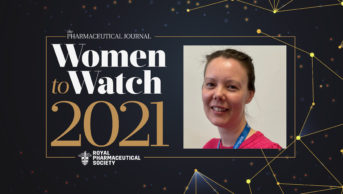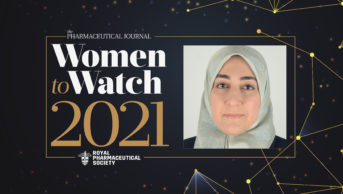
Nargis Gulzar / Shutterstock.com
During the COVID-19 pandemic, senior lecturer Nargis Gulzar went above and beyond to support the wellbeing of her postgraduate students.
When she realised how much the situation was impacting the students’ personal and professional lives, she took matters into her own hands to bring them together and ensure that they got through it.
“I set up a calendar with lots of different slots from early in the morning to evening time and some weekends,” she explains.
“All they had to do was put their initials in a slot they could make. I wanted to make it as easy as possible for them and it worked wonders.
“I realised that just because they’re adult learners doesn’t mean they don’t need support, they do, it’s just a different type.”
I’ve had so many students come back wanting career advice or to connect with others in more specialist roles
Gulzar is now building on that work to help students form networks during their studies and beyond, which will help them in the long term.
“I’ve had so many students come back wanting career advice or to connect with others in more specialist roles so we do need to extend that networking beyond their studies and we’re starting to explore this idea.”
Gulzar has also been involved in outreach work to promote pharmacy as a career in schools and to encourage local community pharmacists to explore postgraduate education, through specially designed “taster” sessions.
“A lot of them are now doing their second year of a diploma or independent prescribing,” she says.
It is this passion for helping others that has led Gulzar to where she is today — and it has not gone unnoticed. In 2020 and 2021, her students nominated her for the university’s vice chancellor Distinguished Teaching Awards; recognition she describes as being “very special”.
“They’re busy people and to take the time out to write something that’s not going to benefit them on top of everything else they have going on, it was really lovely,” she says.
It was while doing work experience as a teenager in Boots that Gulzar first discovered the attraction of a career in pharmacy. After graduating, she spent 16 years working in both community and hospital pharmacies.
Despite this range of experience, she was unsure about teaching undergraduates at the University of Nottingham: “I’m quite a shy person and it was out of my comfort zone, but I did a few sessions and I really enjoyed it. It’s really great to see the progress of the students.”
Wanting to take the next step to further her own professional development, Gulzar decided to take on a National Institute for Health Research (NIHR) internship at Nottingham in 2018.
“Many colleagues said to me, ‘you should do a PhD’, but it was only when I did my NIHR research internship that I realised that research can make a difference, that it can influence change and policy,” she explains.
While she claims her research journey it still in its infancy, Gulzar has, in fact, co-authored several papers on how to improve pharmacy education and a project on supporting the provision of pharmacy medication reviews to marginalised groups.
“It’s about evidence to show what works and what we can achieve. Sometimes policy initiatives come out and you think ‘did they even speak to a pharmacist who does this job?’” she says. “If you do research, outcomes are going to be more realistic and usable and have more impact.”
Panellist comments
“Impressive publishing record. Her work is an inspiration to those she teaches.”
“She’s looking after patients by educating and supporting professionals and going above and beyond [to do that].”
“She is inspirational.”
Meet the rest of The Pharmaceutical Journal’s Women to Watch 2021 here


